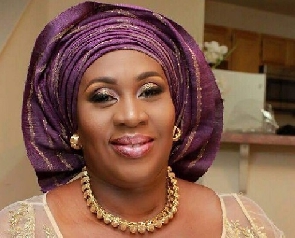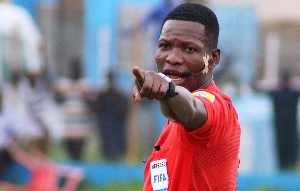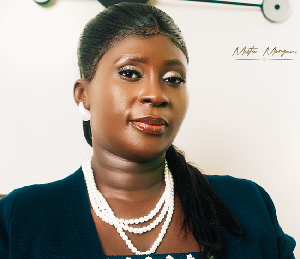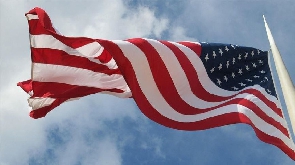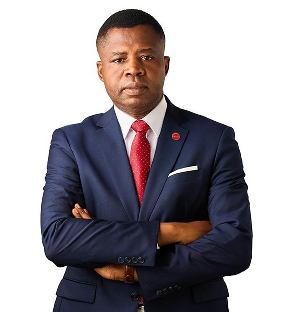Is it losing It's grip on society?
There's no doubt that before the European penetration with their introduction of formal education, colonial administration, agriculture and money economy, the Ghanaian (African) societies depended solely on the extended family system for survival.
Nevertheless, the modern civilization that followed colonialism has affected very greatly the role and function of the traditional family system. The million pounds question now is: has the traditional extended family's role and function been undermined or has it completely lost its grips on the modern Ghanaian (African) societies?
To me, this is a debatable issue needing in depth analysis, weighing the pros and cons, conclusions, with facts and figures or maybe leaving it for social scientists to deliberate upon and make suggestions.
However, as a freelance journalist and an aspiring professional writing correspondence student, I have decided to attempt to answer in the way I understand it relying on research and references from authorities on the subject.
In my view, it has no straight forward yes or no answer. It needs discussions, pros and cons arguments (hypothesis) and drawing some conclusions. All said and done, what is extended family systems as operated in the olden days in the various Ghanaian (African) societies?
There's no doubt that, no matter how technologically and scientifically we have developed, members of society start life within a family unit. By some definition, the nuclear family is the simple “legal” family-a couple with a child(ren), who are properly(legally), socially or traditionally married. On the otherhand, the extended family is sometimes referred to as a consanguine family; and the nuclear family as conjugal family.
In some societies/communities in Ghana, i.e.. the Gas, Ewes, Northerners etc..., descent is from the father's side and we call it patrilineal descent or inheritance. In other societies too, descent is traced from the mother's side like my tribe the Asantes(Ashantis) being part of the great Akan tribe of Ghana, that is matrilineal. We describe siblings as one or two more children having one/both parents in common-brothers and sisters.
The family, according to Sociologist F.T. Wright and F. Randall-in their book: Basic Sociology,(1978) they posit that the fundamental association is the family association of mother and child: and that the family association is the normal and common association of parents and children.
For instance , the extended family is responsible for the “Right de Passage”-the initiation into adulthood/womanhood, i.e. “Bragoro”, “Puberty Rights of the Akans(Asantes) of Ghana into womanhood and the “Dipo”, of the Krobos also of Ghana. Or the male circumcision-the removal of the foreskin of the male organ.
The extended family served as a conduit pipe -to establishing standards and clan identification. Also, one's socio-cultural development starts from the extended/nuclear family; it moulds one's character/training to fit into society; shapes one's belief in witchcraft, juju, vodoo, ect.
The other obvious functions of the extended family includes teaching its members singing, drumming dancing, trance relations and attendance at shrines or neo-Christian(spiritual) church worshiping: it serves as a social control agency; protect, punishes its members who offend the law and rewards those who deserve rewarding.
The extended family has its good(positive) and bad(negative) sides too. But, on the whole, it uses to and must be seen to play a useful role in society. It, on the otherhand, helps members consciously or unconsciously assign various degrees of reasons for all events-good or bad(misfortunes) especially fatal accidents and deaths-involving superstitions. I personally benefited a greatdeal from my external family's assistance-it was my maternal grandfather who looked after me from elementary school to the university. Event hough he is dead, I'm very grateful to him and intend to write a book in his memory; may he rest in perfect peace.
Pressured by culture and environment, just like other people in primary societies, as Margaret Mead-an Anthropologist will tell us, it utilises basic psychological endowments to make their adjustments to ambient pressures and stresses. One thing we have to bear in mind is, as Professor of psychiatry, E.F.B. Forster, will emphasise: “To say the African must have his own kind of psychology, different from other people, or to say continental groups have each, their own psychology and psychopathology, is unfounded, fallacious, frivolous and futile”.
It could be emphasised that in the traditional societies the process of socialization-the adjustment of the individual to his environment both physical/spiritual; the learning of habits of conduct by one generation from another-acquisition of knowledge through in formal system of training etc, depends on education in its widest sense-means anything the individual learns in society. For example, how to eat, to adjust oneself in the society, all these things are learnt by watching, listening, participating in activities, etc.
But, in the modern complex society certain agencies have sprung up performing some of the functions of the extended family. In the olden days, the extended family was the brain, eye and heart of the family in society. The traditional extended family epitomised the society's values, norms, ideas, ideals, more, beliefs, ect.
It tried to serve the ethos of people; people must be critical, objective and not accept things at its face value. Not to be “yes” men all the time; change men's attitudes and modes of thinking through education,i.e. anything the individual learns in society, as these norms, mores, etc, served as social control in both acepholous and cepholous societies.
There's no gainsaying of the fact that the family is supposed to be the cornerstone of any society. Permissiveness copied from the Europeans should not be allowed too much a chance in our societies. As Africans, we must encourage our children to be God-fearing, for it's said, the fear of God is the beginning of wisdom.
We all know children of today want to be more independent and to be free from parental control and domination. Nevertheless, teachers and parents have to devise a way to infuse discipline and good character traits in them. They have to know that the family is the most basic agent of socialization to usher and direct the children into the world they(parents) know. Due to modern trends, there are signs of cracks and good influences in both nuclear and extended families's primary responsibilities in society now.
The fundamental tasks or responsibilities of the nuclear and extended families are now being performed by other social/governmental agencies. Does that amount to undermining of authority or funtion? I personally don't think so. I think it rather supplements or compliments what the nuclear and extended families do in order to help individuals, and groups to adjust well in society with its complexities. That's what modern culture or civilization is doing.
Before, the family was responsible for the major upbringing and responsibilities of its members as already discussed. However, now we have well defined agencies undertaking some or all of these tasks; education, sanctions and social control mechanisms have shifted from the family to the educational institutions-from the kindergarten to the university and the law courts control people's behaviours.
In the modern industrialized and technological environments especially in this era of computer and internet, the state has taken over more of the functions of the family. Now emphasis has been placed on the globalisation concept as the world struggles to become a “Global Village”.
Socialization, education, training and good behaviour and adjustment into societies; crime, detection, sanctions/punishments or ordering of good social behaviour etc, are now in the state's hands. Provision of welfare services are done by the government, Non-Governmental Organizations (NGOs), ect. We should not forget the World's”Policeman”-the United Nations-doing all the humanitarian jobs especially for refugees and disaster victims.
Sociologists, writers, social commentators, social scientists, critics, family watchers, ect, have come to the conclusion that modern family as an institution is in the process of decay; the report of the Royal Commission of Population 1949, UK, observed that, the influence of the social services on the size of the family must be critically examined. Some also argue that the extended family still do exist especially in the Ghanaian and other African and even in some European, Asian, etc, societies and still have some influence and roles to play to make society a good organization. Though its influence and operational powers have been weakened by direct state institutions, care must be taken not to write it off completely.
I wish to advocate that the importance of the extended family system must not be allowed to break down completely. Can we concretely say that the traditional family system in the Ghanaian and African societies has totally crumpled due to modernity? No, for I feel very strongly that the extended family still has a role to play. I will like to emphasise that we strengthen its grips and functions. Lets go back to our roots for it will help us the more. I will like to stretch my neck to say that it's influence is not yet completely broken down.
As most African countries don't have well organized welfare packages and effective Social Security Systems, the extended family system still plays major effective and crucial social/welfare roles in education, in times of crisis like sickness, death, marriage, etc, of its members and we have to encourage that at all cost.
In conclusion, I think, I agree with the opinion of these two eminent Sociologists F.J. Wright and F.Randall, who in their book: The Basic sociology(UK,1949) still maintain that, “Inspite of all the forecast about imminent dissolution, the family-the extended family especially-continue to exist and influence somehow. However, changes which have occurred have affected the family in structure, role and function; such as size, marriage, divorce, custody of children, interference by the law courts on its members”.
Nana Kwaku Kurankye Kwatei is University of Ghana,Legon,Accra trained Social Administrator(Worker,1980);Freelance Journalist & currently Professional Writing Distance-Learner with WB,Mancester,UK, & Vice-President of AYACSA-an NGO, of Ghanaian Initiative based in Hamburg.
Email:nanakwatei@yahoo.de Tel.+49(40)64223328/64425232/0176-28104482.


